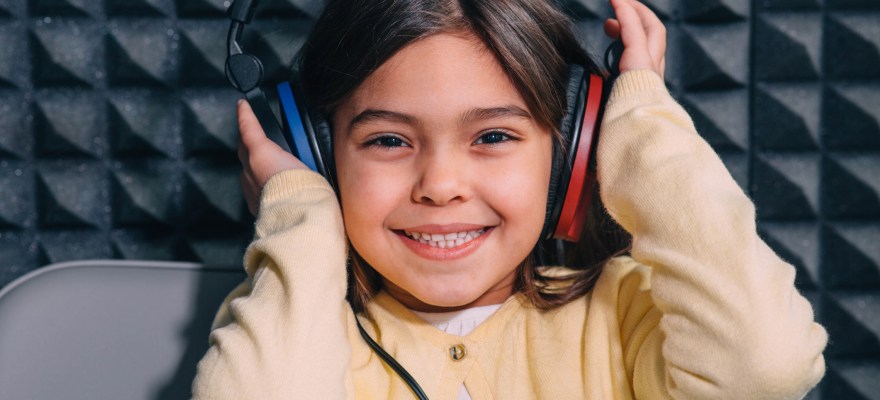
Preventing hearing loss in children is important. And with the arrival of summer comes fireworks, concerts and other events with sustained loud noise. Considering hearing loss can affect a child’s ability to develop speech, language and social skills, parents and those caring for children should be aware of the potential risks and downstream effects loud noises may bring, experts say.
New research announced last month from the National Council on Aging (NCOA) includes data examined from national surveys and clinical studies, focus groups and interviews with audiologists and patients. Here are some highlights:
- 12.5% of children between 6 and 19 have some degree of hearing loss caused by listening to audio devices too loudly
- Up to 17.5% of teenagers have some degree of hearing loss
- Almost 3 in 4 teenagers are exposed to loud noise at school and are not provided hearing protection
Preventing Hearing Loss in Children: Being Around Loud Noise; and a Famous NYC Radio Host Shares Her Story
The NCOA said hearing exam data from more than 7,000 teenagers across the country found that up to 17.5% of teenagers have some degree of hearing loss, and a 2020 survey conducted by the Centers for Disease Control and Prevention (CDC) reported that 73.6% of teenagers were exposed to loud noise at school. The majority of those students weren’t provided with hearing protection
Q104.3’s Shelli Sonstein Discusses Her Struggle with Hearing Loss
According to NCOA, many people who are exposed to loud noise, whether through music, equipment, or recreational activities, don’t realize the damage it’s causing to their ears until they have noticeable hearing loss. This often shows up as difficulty understanding conversations.
Celebrity iHeartRadio host, Shelli Sonstein, knows this all too well. Having worked in radio for 50 years, and as the co-host of Q104.3’s The Jim Kerr Rock & Roll Morning Show, Sonstein loves music, radio and broadcasting. But after all that time around loud noise, she started to notice her hearing was suffering.
She was most affected outside of work. After all, when she’s on the air, she’s wearing headphones, which is essentially like wearing hearing aids. It was off-air sound and conversations that she was missing out on.
“It really bugged me when I was driving with my grandkids,” Sonstein said. “They almost always have to go to the Los Angeles Zoo—it’s tradition. So, they were in the backseat, I’m driving, and I could not hear their conversations. That’s what spurred me to get hearing aids.”
Sonstein admits it wasn’t easy to take the necessary steps to save her hearing. And it wasn’t easy for her to accept that she needed a hearing aid. Ultimately, she tried a few brands of hearing aids but, unfortunately, she became even more discouraged.
“I thought there was something wrong with me because they didn’t sound right,” she said. “Sure, it was an improvement over not hearing, but they weren’t natural. They sounded tinny.”
Eventually, Sonstein’s audiologist recommended a hearing aid called Widex Moment Sheer, which she uses today. Widex Moment Sheer aids became a game changer for the radio pro. Before, she was constantly asking people to repeat themselves, and her quality of life has greatly improved. Sounds she hadn’t heard in years were back, and she could even hear her husband again, who she describes as a “low talker.”
“Shortly after getting my new Widex hearing aids, I went on a long walk with my dog, and it started hailing,” Sonstein explained. “And I was actually hearing the hail on the leaves — sounds in nature I hadn’t heard in a long time. It was absolutely fantastic.”
Tips For Preventing Hearing Loss in Children
Dr. Ruth Reisman, AuD., is an audiologist and hearing aid dispenser in New York. She reviewed the research about hearing loss that was announced last month from the NCOA and shared five ways parents can keep on top of their kids’ ear and hearing health:
- Regular hearing screenings at the pediatrician or the audiologist office can spot any potential red flags regarding hearing health. Early identification can help prevent the progression of hearing loss in children or ear disease in children.
- Parental oversight on technology use, screen time, and volume settings through family apps (ex Google family, or Apple volume alert settings), will help prevent permanent noise-related damage.
- Invest in a set of hearing protection, either over the ear or custom made, to use during events like sporting events or weddings to avoid permanent damage.
- Many children suffer from chronic ear infections that can result in fluid in the ear. Although the hearing loss in these cases are transient and can improve once the fluid resolves (either through medical or surgical intervention) research shows that prolonged fluid can result in lasting damage to the ear and/or auditory processing disorders.
- Maintaining overall health for children through a balanced diet and nutritional supplements will support the longevity of healthy hearing and help prevent hearing loss in children. Children who unfortunately have to take ototoxic medications, like cancer treatments or strong antibiotics, should undergo an ototoxic monitoring regimen to document any potential effects on the hearing. In some cases, medications can be modified to reduce their effect on the child’s hearing.
Wanna read more stuff like this? Get our newsletters packed with ideas, events, and information for parents in Staten Island.







